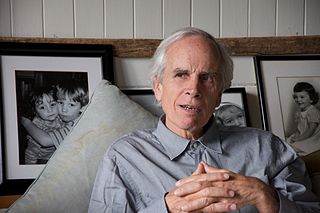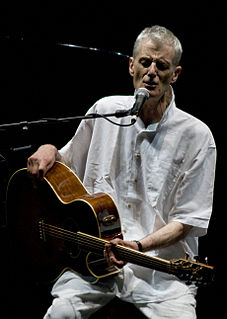A Quote by John Zerzan
I don't think it could be a coincidence that the more technological a society is, the less it connects people.
Quote Topics
Related Quotes
People are entirely too disbelieving of coincidence. They are far too ready to dismiss it and to build arcane structures of extremely rickety substance in order to avoid it. I, on the other hand, see coincidence everywhere as an inevitable consequence of the laws of probability, according to which having no unusual coincidence is far more unusual than any coincidence could possibly be.
Women's lib, Frannie had decided, was nothing more nor less than an outgrowth of the technological society. Women were at the mercy of their bodies. They were smaller. They tended to be weaker. A man couldn't get with child, but a woman could---every four-year-old knows it. And a pregnant woman is a vulnerable human being. Civilization had provided an umbrella of sanity that both sexes could stand beneath.
The more you become a part of society, the less and less you are an individual, the less and less you are spontaneous - because the very membership in the society will not allow you to be spontaneous. You will have to follow the rules of the game. If you enter a society, you accept to follow those rules that the society is playing, or has decided to play.
We might expect intelligent life and technological communities to have emerged in the universe billions of years ago. Given that human society is only a few thousand years old, and that human technological society is mere centuries old, the nature of a community with millions or even billions of years of technological and social progress cannot even be imagined. ... What would we make of a billion-year-old technological community?
Is it a coincidence that stories from the private life became more popular just as the grand hope for public redemption through revolution was beginning to sour? I witnessed a similar shift in taste in my own time. In the 1960s, while a hopeful vision of a just society arose again, countless poems and plays concerning politics and public life were written, read, and performed. But after the hope diminished and public life seemed less and less trustworthy, this subject was less in style.
When people are told to "eat many small meals," what they may actually hear is "eat all the time," making them likely to respond with some degree of compulsive overeating. It's no coincidence, I think, that obesity rates began rising rapidly in the 1980s more or less in tandem with this widespread endorsement of more frequent meals.
When people are told to 'eat many small meals,' what they may actually hear is 'eat all the time,' making them likely to respond with some degree of compulsive overeating. It's no coincidence, I think, that obesity rates began rising rapidly in the 1980s more or less in tandem with this widespread endorsement of more frequent meals.
For some people, it's very easy to be spontaneous and they can pour out the most wonderful stuff. But it's really hard to exert control over it, to think, 'Well, this could be different. This could go in the opposite order, there could be more here and less there.' For other people, it's much easier to have rules and a methodology, but much harder to let loose and allow their feelings to come pouring out on the page. They're more shy or they're just more distant from their emotions. I think everybody starts with one or the other.
Right now, the technological world plus God or spirituality is evolving. I think America has become a little bit too corrupt, government's a little too corrupt, too greedy. Many corporations are too greedy. The labor unions are too greedy. That effects charities and religious organizations. I just think it's greed. That's why, in 1985, I had to figure out how to give before I received. The more I focus on giving, for less and less, the more and more I make.






































